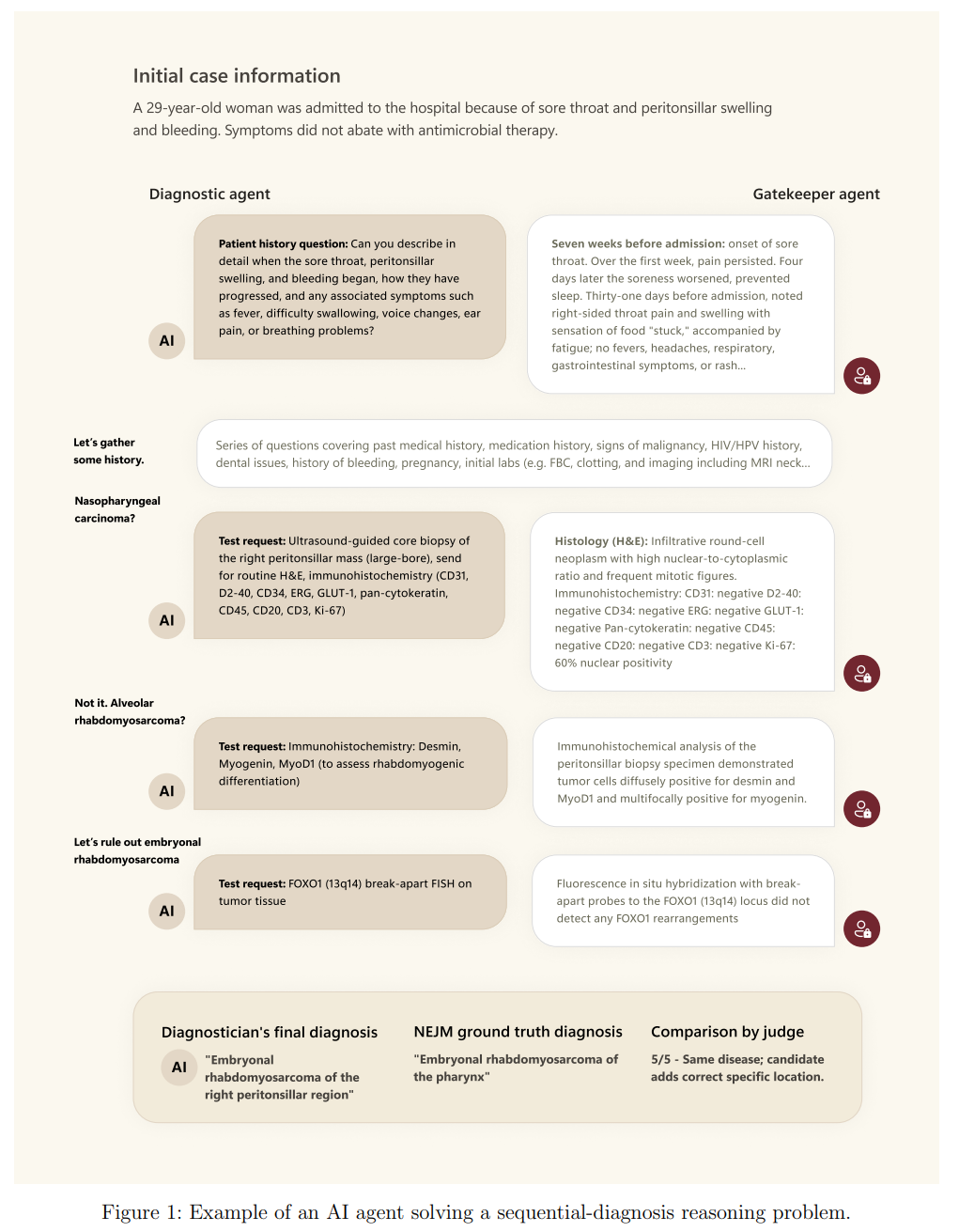Microsoft's MAI-DxO AI Boosts Diagnostic Accuracy and Cuts Costs
Discover how Microsoft's MAI-DxO AI enhances diagnostic accuracy by four times and reduces healthcare costs significantly.

Understanding Microsoft MAI-DxO AI
What is Microsoft MAI-DxO AI?
Microsoft MAI-DxO AI represents a significant leap in healthcare technology, combining advanced AI algorithms with diagnostic expertise. This innovative tool is designed to enhance accuracy and efficiency in medical diagnostics, leveraging deep learning to analyze complex datasets, including medical images and patient records.
Key Components of MAI-DxO AI
- Advanced AI Algorithms: Utilizes deep learning models to process vast amounts of data, identifying patterns that may elude human professionals.
- Integration with Diagnostic Tools: Seamlessly works with existing medical imaging and diagnostic systems, enhancing their capabilities.
- Continuous Learning: The AI improves over time, adapting to new data and medical knowledge.
Design for Diagnostic Accuracy
MAI-DxO AI is engineered to improve diagnostic precision. By analyzing extensive datasets, it reduces false positives and negatives, aiding healthcare providers in making accurate decisions. Its design ensures reliability and consistency, crucial in high-stakes medical environments.
How MAI-DxO AI Differs from Traditional Methods
Comparison with Conventional Diagnostics
Traditional methods rely on human expertise, which can be subjective and time-consuming. MAI-DxO AI offers a more objective and efficient approach, reducing variability and enhancing speed.
Role of AI in Precision and Speed
AI accelerates the diagnostic process by quickly analyzing large datasets, freeing up healthcare providers to focus on patient care. This leads to faster and more accurate diagnoses, improving patient outcomes.
Benefits of Microsoft MAI-DxO AI in Healthcare
Enhancing Diagnostic Accuracy with AI
MAI-DxO AI achieves four times greater accuracy by meticulously analyzing data, reducing errors. Case studies show improved patient outcomes, such as earlier disease detection leading to better treatment success rates.
Reducing Healthcare Costs
By minimizing errors and streamlining processes, MAI-DxO AI cuts costs. For example, reducing unnecessary procedures can save millions annually, positively impacting healthcare economics.
Improving Operational Efficiency
The AI streamlines workflows, reducing diagnostic time from hours to minutes. This enables faster decision-making, allowing healthcare providers to treat patients more swiftly and effectively.
Implementing MAI-DxO AI in Healthcare Settings
Best Practices for Integration
Adoption involves training staff, integrating with existing systems, and ensuring data privacy. Tools like ChatGPT Essentials guide effective implementation, enhancing the AI revolution in healthcare.
Addressing Challenges
Challenges include data privacy and system integration. Securing data with ChatGPT ensures compliance with regulations, building trust in AI adoption.
The Future of Microsoft MAI-DxO AI in Healthcare
Emerging Trends and Market Adoption
The demand for AI in diagnostics is rising, driven by the need for accurate and efficient solutions. Widespread adoption is predicted, transforming healthcare delivery.
Impact on Patient Care
MAI-DxO AI will enhance patient care by enabling early and accurate diagnoses, improving treatment outcomes. This shift will revolutionize healthcare systems, making them more efficient and patient-centric.
Conclusion
Microsoft MAI-DxO AI is poised to revolutionize healthcare diagnostics, offering unparalleled accuracy and efficiency. As the technology evolves, its impact on patient care and healthcare systems will be profound, driving a new era in medical diagnostics.